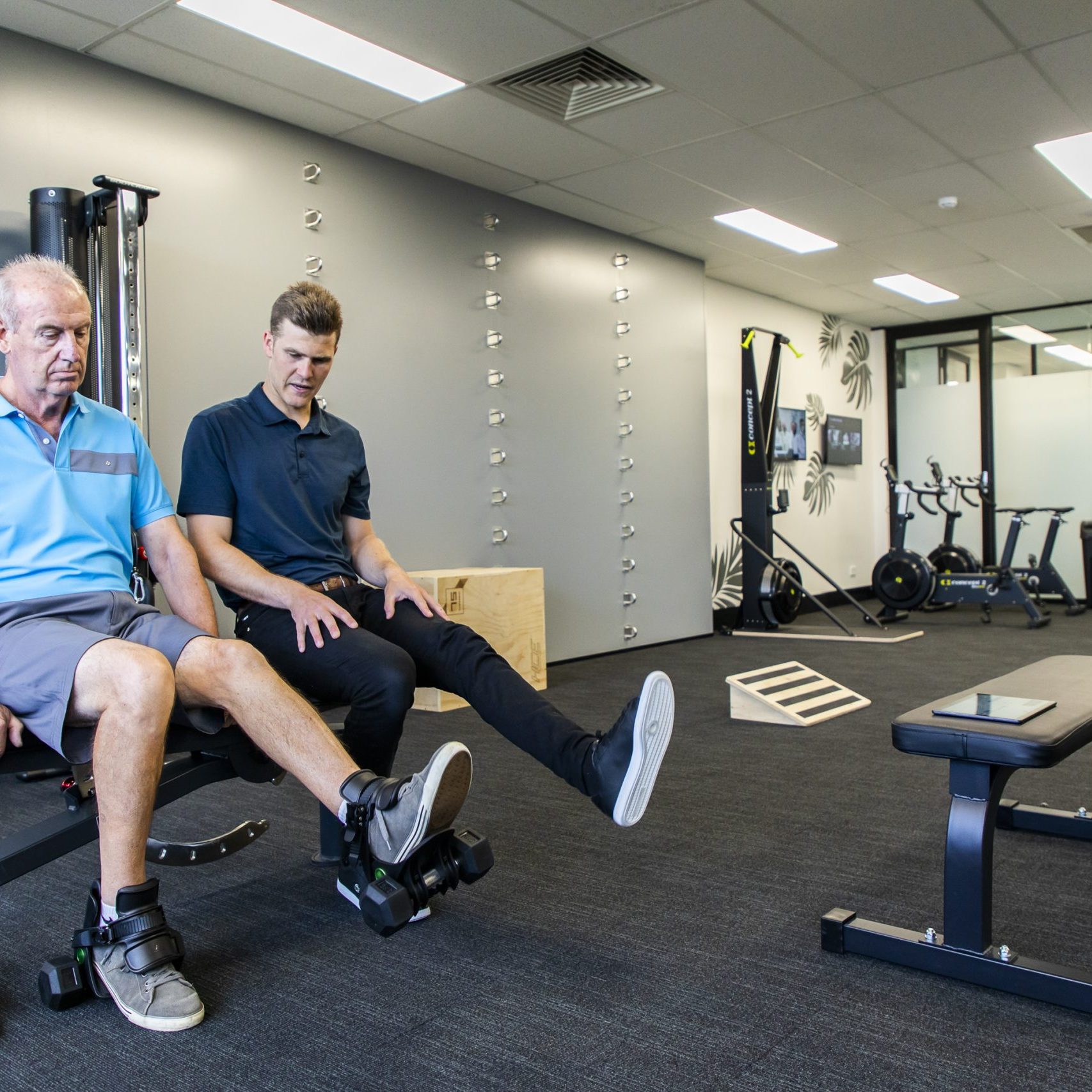There is no cure for knee osteoarthritis, but there are many non-surgical options to manage the pain and reduce its impact on your daily life. Maintaining a healthy weight is the first step and can reduce strain on the knee to alleviate symptoms.
Regular resistance-based exercise is crucial to maintain your strength and maximise function. Low-impact activities such as swimming, yoga, walking and cycling can all help you keep fit and help your psychological wellbeing, but functional resistance work is key.
Click here to learn more about our non-operative osteoarthritis functional recovery programs.
Over the counter pain medications such as paracetamol (Panadol osteo) and ibuprofen (Nurofen) can relieve symptoms. Although your doctor can prescribe stronger painkillers which, they are not recommended for osteoarthritis as they have multiple side effects and don’t work well in the long term.
Cortisone, PRP (platelet rich plasma), and synthetic joint fluid injections don’t work for everyone and only temporarily relieve pain. There is a limit to how often they can be given safely: we use them to settle your knee so you can manage the functional exercises that provide long-term relief.
Some specific patterns of osteoarthritis can be helped with a brace that helps unload the side of the knee with the cartilage damage. We can prescribe these braces and organise for your fitting if we feel you are a good candidate.
If your knee pain is not relieved by these therapies and is significantly impacting your quality of life, you may be a candidate for surgery. Surgical treatments can include:

